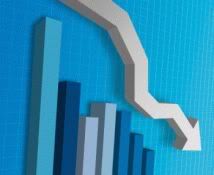The mystery of the shrinking wallet: How to combat rising prices, part 1
By Randell Tiongson on April 25th, 2011 Inflation has been rising. Government says it is now beyond 4% and many institutions are saying that we can expect inflation to breach the 5% mark very soon. The government already conceded that it will miss its inflation target — what they are not saying is they are missing the target by a mile. The other day, I passed by the gas station to get some unleaded fuel and told the gasoline attendant to pump me P 1,000 worth of fuel. For a cheapskate like me, that’s a lot of money to part but we all need to spend, whether we like it or not. As I was watching the pump, I was surprised to see that my precious 1,000 bucks was only able to buy a little over 17 liters of fuel! The nostalgic in me reminisced about the bygone years where pumping 500 pesos was enough to fill my gas tank – oh the glory days! It’s not just fuel that reduced my purchasing power, the same applies whenever we buy groceries, pay for bills, eat at restaurants and the like.
Inflation has been rising. Government says it is now beyond 4% and many institutions are saying that we can expect inflation to breach the 5% mark very soon. The government already conceded that it will miss its inflation target — what they are not saying is they are missing the target by a mile. The other day, I passed by the gas station to get some unleaded fuel and told the gasoline attendant to pump me P 1,000 worth of fuel. For a cheapskate like me, that’s a lot of money to part but we all need to spend, whether we like it or not. As I was watching the pump, I was surprised to see that my precious 1,000 bucks was only able to buy a little over 17 liters of fuel! The nostalgic in me reminisced about the bygone years where pumping 500 pesos was enough to fill my gas tank – oh the glory days! It’s not just fuel that reduced my purchasing power, the same applies whenever we buy groceries, pay for bills, eat at restaurants and the like.
From my perspective, I don’t think inflation is just at 4 to 5% — and my wallet agrees with me.
Just what is inflation? Investopedia defines inflation as “the rate at which the general level of prices for goods and services is rising, and, subsequently, purchasing power is falling. Central banks attempt to stop severe inflation, along with severe deflation, in an attempt to keep the excessive growth of prices to a minimum.” In practical terms, it means that prices will rise according to the inflation rate over one year (per annum); if inflation is at 4%, a P100 per kilogram of Chicken today will cost P104 per kilogram next year. Consumer Price Index or CPI is the barometer to which inflation is measured. In general, the consumer price index reflects changes in the cost to the average consumer of acquiring a basket of goods and services that may be fixed or changed at specified intervals, such as yearly. The basket includes the most basic goods the average Filipino family consumes – general food items, utilities, oil, etc.
Alright, enough economic gibberish – no one wants to be reminded of the boring economics classes we had to take during our student days. Unfortunately, the ‘boring economics’ we all hate is pretty much the reason why we are all dumbfounded – trying to figure why the value of money in our wallets are shrinking.
Our knee jerk reaction to rising prices is always to be overwhelmed, and for a good reason. I’m not sure if this applies to other folks but here’s how I react whenever inflation is very high: disbelief, anger, frustration, blame, acceptance, indifference. I get shocked that prices goes up so fast so soon (like fuel); then I am annoyed as to why prices are going up such as external factors (middle east situation, financial crisis, etc.); I move on to being frustrated – frustrated at the government for not making the right responses, frustrated at myself for my microscopic income; then I blame the government for being inept and sometimes blame myself for missed business opportunities that would have cushioned the rising prices; I slowly begin accepting the harsh economic realities that life is as such and there’s really nothing I can do about it; finally, I move to being indifferent – after all, my ramblings will not bring prices down and I resign to the fact that there’s nothing I can do.
I’m not sure if this applies to other folks but here’s how I react whenever inflation is very high: disbelief, anger, frustration, blame, acceptance, indifference. I get shocked that prices goes up so fast so soon (like fuel); then I am annoyed as to why prices are going up such as external factors (middle east situation, financial crisis, etc.); I move on to being frustrated – frustrated at the government for not making the right responses, frustrated at myself for my microscopic income; then I blame the government for being inept and sometimes blame myself for missed business opportunities that would have cushioned the rising prices; I slowly begin accepting the harsh economic realities that life is as such and there’s really nothing I can do about it; finally, I move to being indifferent – after all, my ramblings will not bring prices down and I resign to the fact that there’s nothing I can do.
… to be continued.


